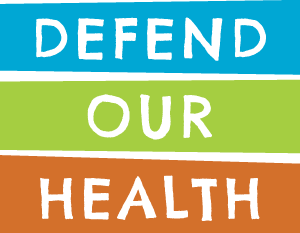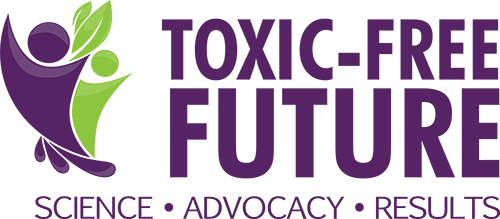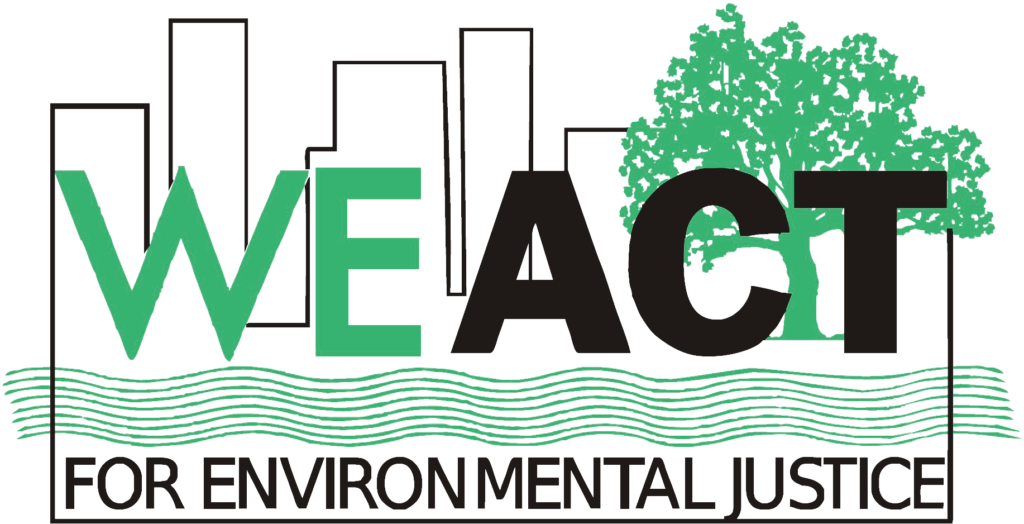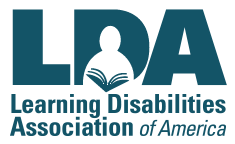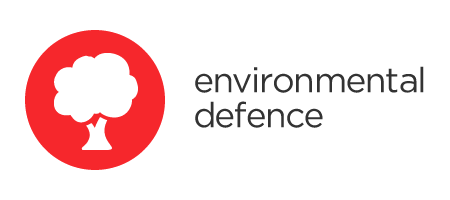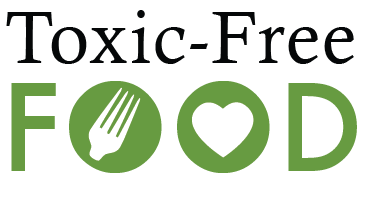
The "everywhere" chemicals in your food.
Your food should be safe. But through the food you eat, you're exposed to toxic chemicals called phthalates (THAL-eights) that are used to soften plastics, and in fragrance, inks, adhesives and coatings.
Prenatal exposure to phthalates is linked to ADHD, genital malformations in baby boys, and infertility later in life.
Phthalates can leach into food—even organic food—through processing and packaging.
In fact, the food you eat is the number one source of exposure.
Across the U.S., exposure to phthalates is a silent epidemic.


Government experts say that up to 725,000 American women of childbearing age may be exposed each day to levels of phthalates that could harm a developing baby.
Click here for the facts on phthalates in our food supply.
Despite scientific evidence that has emerged in the last decade, the U.S. Food and Drug Administration (FDA) still allows the food industry to use phthalates in food contact materials.
With the FDA dragging its feet, U.S. food manufacturers must take action to protect kids and families and keep phthalates out of our food.
Time to Take off the Toxic Gloves
Which gloves contain toxic phthalates that can leach into your meal?
We sampled and tested over 120 plastic food service gloves from top distributors and popular restaurant chains in the U.S. in order to answer that question.
Our top findings:
- Some vinyl (PVC) gloves at McDonald's, Wendy's, and Burger King restaurants contained phthalates
- Two-thirds of the fast food restaurants we visited were using PVC gloves, which contain plasticizer chemicals like phthalates that leach into food
- One out of seven PVC gloves contained phthalates
Learn more!
- Click here to see how top restaurants ranked
- Click here to read the summary report
- Click here to print out our recommendations
- Click here to read the full technical report
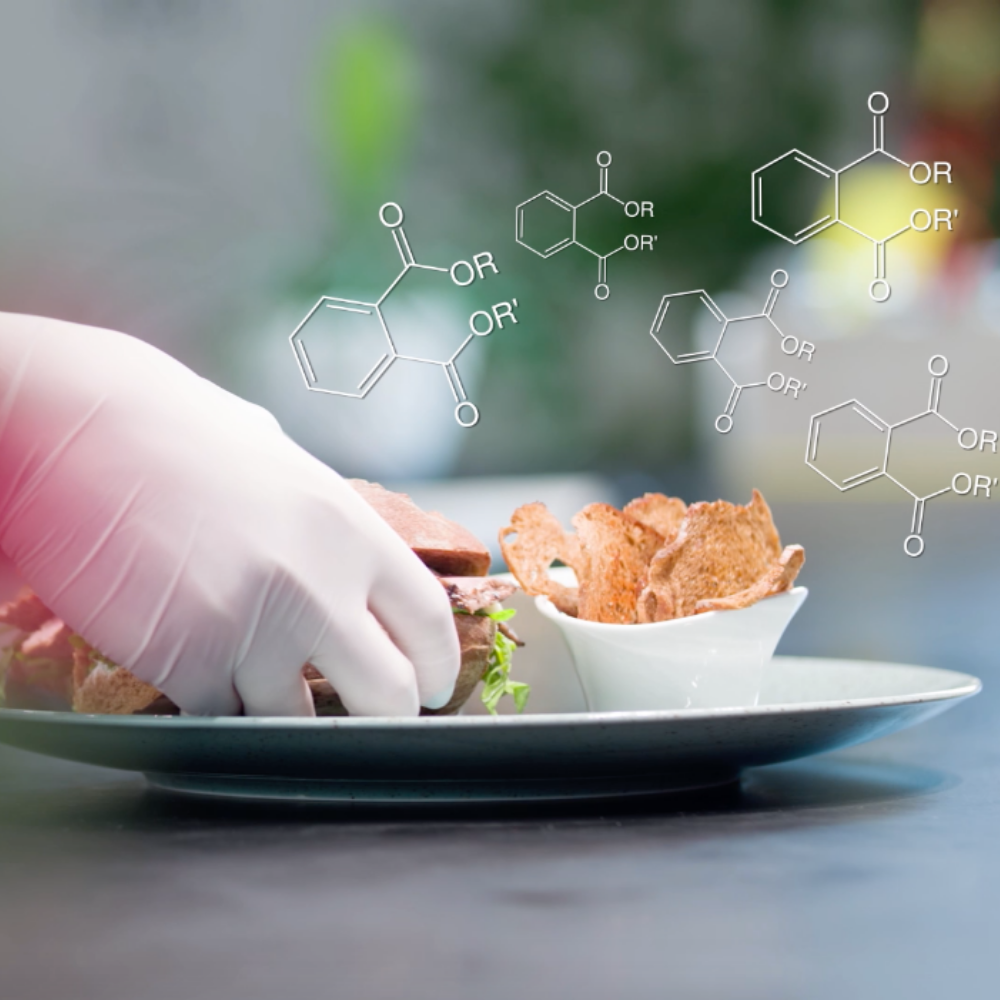
The only way to keep harmful phthalates from leaching into a restaurant meal from foodservice gloves is to stop using vinyl gloves altogether. Tell McDonald's to be a market leader and take off the toxic gloves!
Calling on Food Industry Leaders
The food you eat—especially fatty foods like cheese—is the number one source of exposure to phthalates. So we’re calling on #1 cheese manufacturer Kraft to be an industry leader and protect pregnant women and kids by eliminating any phthalates in their products.
After public pressure, Kraft recently stopped using artificial dyes in its macaroni and cheese. Now it’s time to get phthalates out of all of Kraft cheese!
Learn more about our campaign:
>> Read our 2017 letter to the Kraft Heinz Company
>> See our cheese test results
>> Read our response to Kraft on phthalates in mac and cheese
Selected Press Coverage
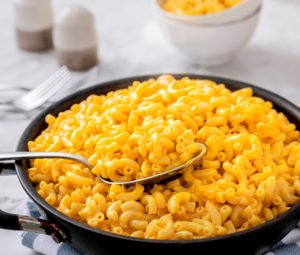
Annie’s Pledges to Purge a Class of Chemicals From Its Mac and Cheese - New York Times
"The chemicals could enter the food in many places along the supply chain, including at the farm, where flexible plastic tubes carry milk from the barn, or in the making of the cardboard container that holds the noodles. The chemicals tend to collect in foods with a high fat content, such as cheese."

What chemicals are in your mac and cheese? - CNN
"It's not listed on the ingredient list, but a new analysis published this week found high concentrations of the chemicals known as phthalates in the cheese powder of macaroni and cheese."
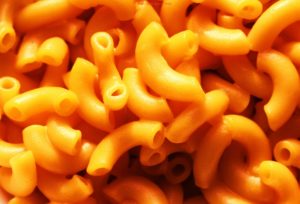
ConsumerWatch: Mac 'n' Cheese Danger - CBS San Francisco
"A new report raises questions about chemicals found in cheese powder. Consumer reporter Julie Watts explains."

Dining out is bad for your health, according to a new study - San Francisco Chronicle
"Dining out at restaurants might be bad for your health, according to a national study released Wednesday. But it’s not solely due to sugars or fats, but to increased levels of potentially harmful chemicals called phthalates."

Some farm equipment may be a source of toxic chemicals in dairy, study finds - Dairy Reporter
"A new report has both bad news and good news for lovers of dairy products."
When reviewing media reports, keep in mind our conclusion: “Further research is needed on the phthalate levels in food.” We call on food manufacturers to identify and eliminate sources of phthalates in any of their products.

Reports and Additional Resources
- Factsheet: "Racial, Age, and Gender Disparities in Exposure to ortho-Phthalates in the U.S."
- Factsheet: "Phthalates in Food Threaten Human Health"
- Factsheet: "Known Sources of ortho-Phthalates in Food Contact Materials in the United States"
- Our statement on the fourth annual Retailer Report Card grading retailers and restaurants on their safer chemical policies
- Our statement on the American Academy of Pediatrics' warning about toxic phthalates in kids' food
- Our press release on phthalates found in some dairy farm equipment
- Data summary for our cheese test results
- The laboratory report for our cheese test results








